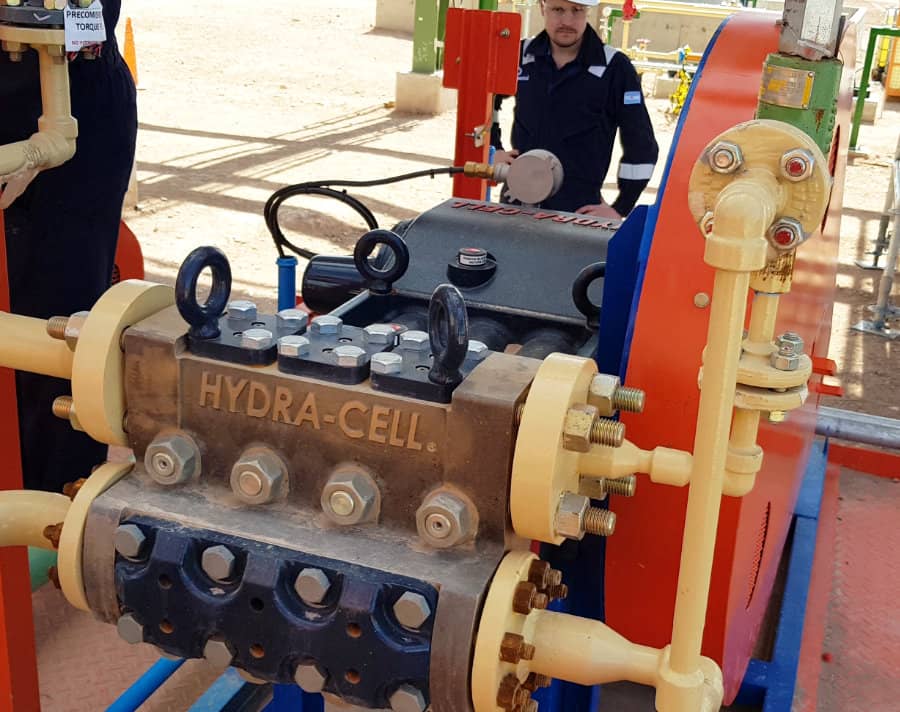Glycol pumps play a pivotal role in maintaining the smooth operation of a multitude of industrial processes. By facilitating effective temperature regulation and fluid transfer, these pumps contribute significantly to both productivity and efficiency. Industries ranging from food and beverage to pharmaceuticals rely on the precision control glycol pumps provide. Their ability to manage cooling systems, particularly in large-scale operations, is unmatched. Below, we delve into the intricacies of their function and the numerous benefits they offer to industrial applications.
Understanding Glycol Pumps and Their Role in Industrial Process Management
Glycol pumps are specialized pumping systems designed to circulate glycol solutions through various parts of industrial cooling and heating systems. Primarily, these pumps are integral to the function of HVAC systems, refrigeration units, and any process requiring precise temperature control. They operate by transferring a mixture of glycol—commonly ethylene or propylene glycol—and water, which works as a heat transfer fluid.
The role of glycol pumps is critical because they ensure that the temperature of the process remains within the desired range. This is essential for maintaining product quality, especially in industries where temperature sensitivity is paramount. The reliability of these pumps often dictates the consistency and efficiency of the production cycle, directly impacting operational uptime and profitability.
With advancements in pump technology, glycol pumps have evolved to offer better performance and integration into modern industrial systems. Today’s models can achieve higher flow rates and pressures, requiring less maintenance than ever before. This evolution has made them a cornerstone in the management of complex industrial processes, ensuring they continue to function at optimal levels.
Optimizing Temperature Control: How Glycol Pumps Improve Operations
Temperature control is a critical factor in many industries, and glycol pumps are instrumental in achieving precise temperature regulation. Industries such as food processing and pharmaceuticals require exact temperatures during manufacturing to ensure safety and efficacy. Glycol pumps offer this precision through consistent and reliable performance.
The integration of glycol pumps into modern control systems means that temperatures can be monitored and adjusted in real time. This responsiveness prevents waste caused by temperature deviations and also allows processes to remain agile, accommodating changes in production needs without significant downtime or energy waste.
By maintaining optimal temperatures, glycol pumps minimize the risk of product spoilage. This is especially important in sectors like food preservation, where temperature fluctuations can lead to significant financial losses. The use of glycol pumps helps to ensure that products reach the market in the best possible condition, maintaining consumer trust and brand reputation.
Glycol Pumps and Energy Conservation: Reducing Industrial Operating Costs
As the industrial sector increasingly focuses on sustainability and cost savings, glycol pumps stand out for their ability to contribute to both. Their role in energy conservation is considerable because efficient temperature regulation directly correlates with less energy usage. By optimizing their systems, industries can experience a substantial decrease in utility costs.
The design of glycol pumps allows for variable speed operation, which means they can adjust their output according to the demands of the system. This adaptability ensures that they operate only as necessary, avoiding unnecessary energy expenditure and extending the lifespan of the pumps themselves by reducing wear and tear.
In addition to operational cost savings, investing in high-quality glycol pumps can also lead to tax incentives and rebates related to energy efficiency initiatives. Governments and utility companies often provide these benefits as part of their efforts to promote greener industrial practices.
Case Studies: Real-World Applications of Glycol Pumps in Industry
Examining real-world applications of glycol pumps offers valuable insight into their versatility and effectiveness. In the brewing industry, for example, precise temperature control is crucial for fermentation. Glycol pumps maintain the exact temperatures required for different brews to ensure consistent flavor profiles and high-quality end products.
In the plastics industry, glycol pumps are used during the injection molding process to cool molds quickly and uniformly. This not only increases the production rate but also ensures that each item meets stringent quality standards. The fast, controlled cooling made possible by glycol pumps is an essential step in producing flawless plastic components.
Altogether, glycol pumps offer industries a reliable and cost-effective solution for managing temperature-dependent processes. These benefits, combined with energy conservation, make glycol pumps an indispensable component of modern industrial operations. Overall, the consistent improvement in process management and operating costs afforded by glycol pumps mark them as essential tools for any temperature-sensitive industrial application.




